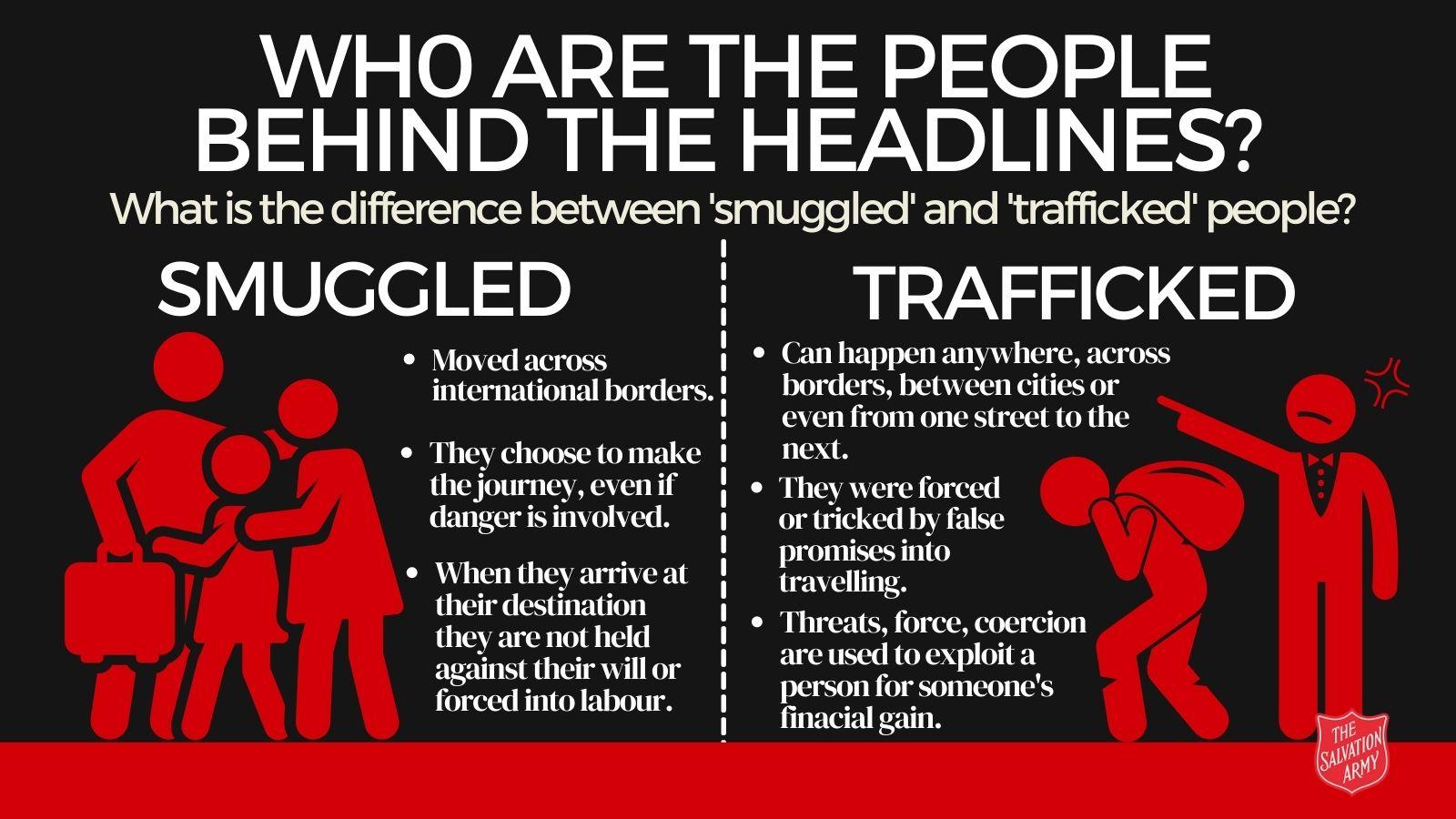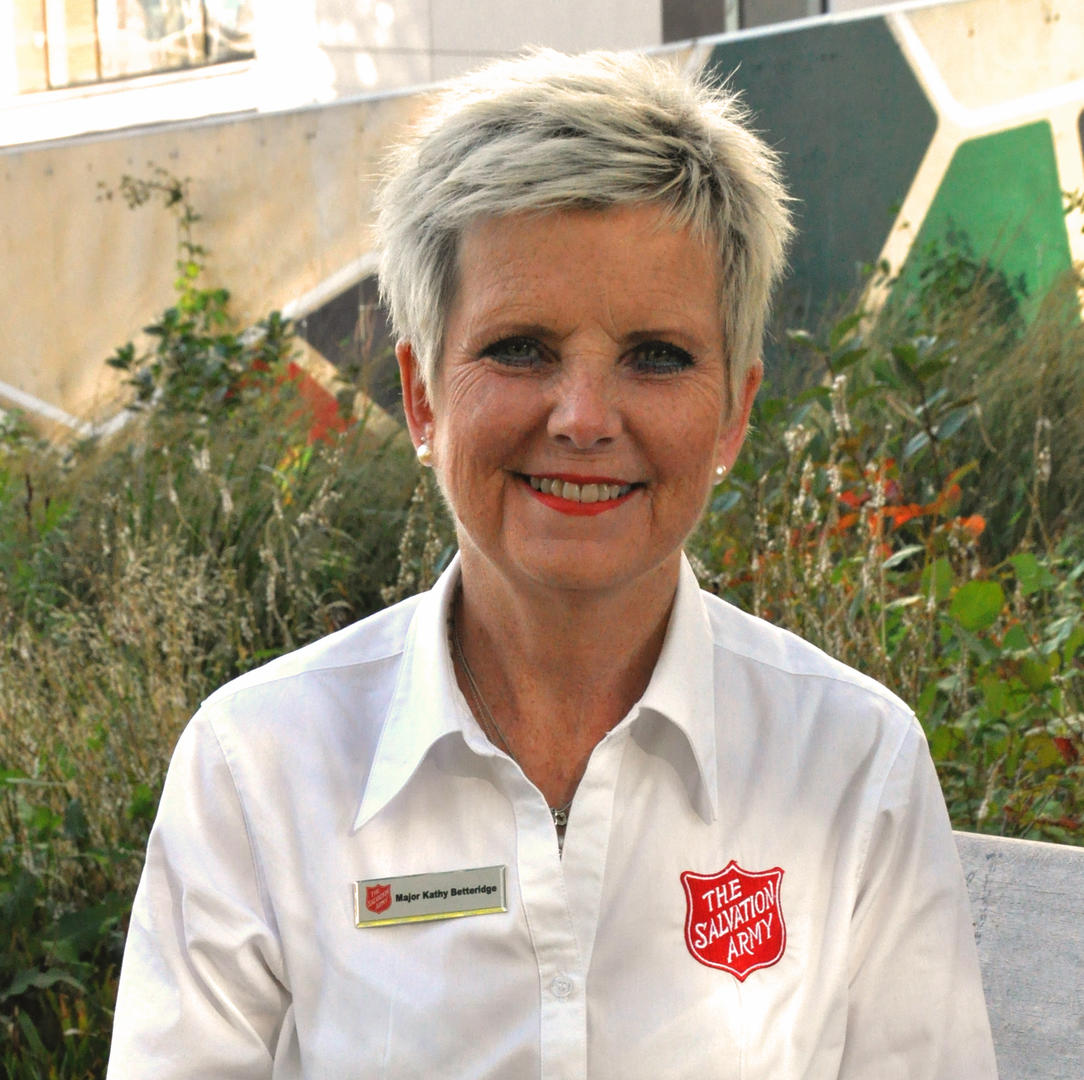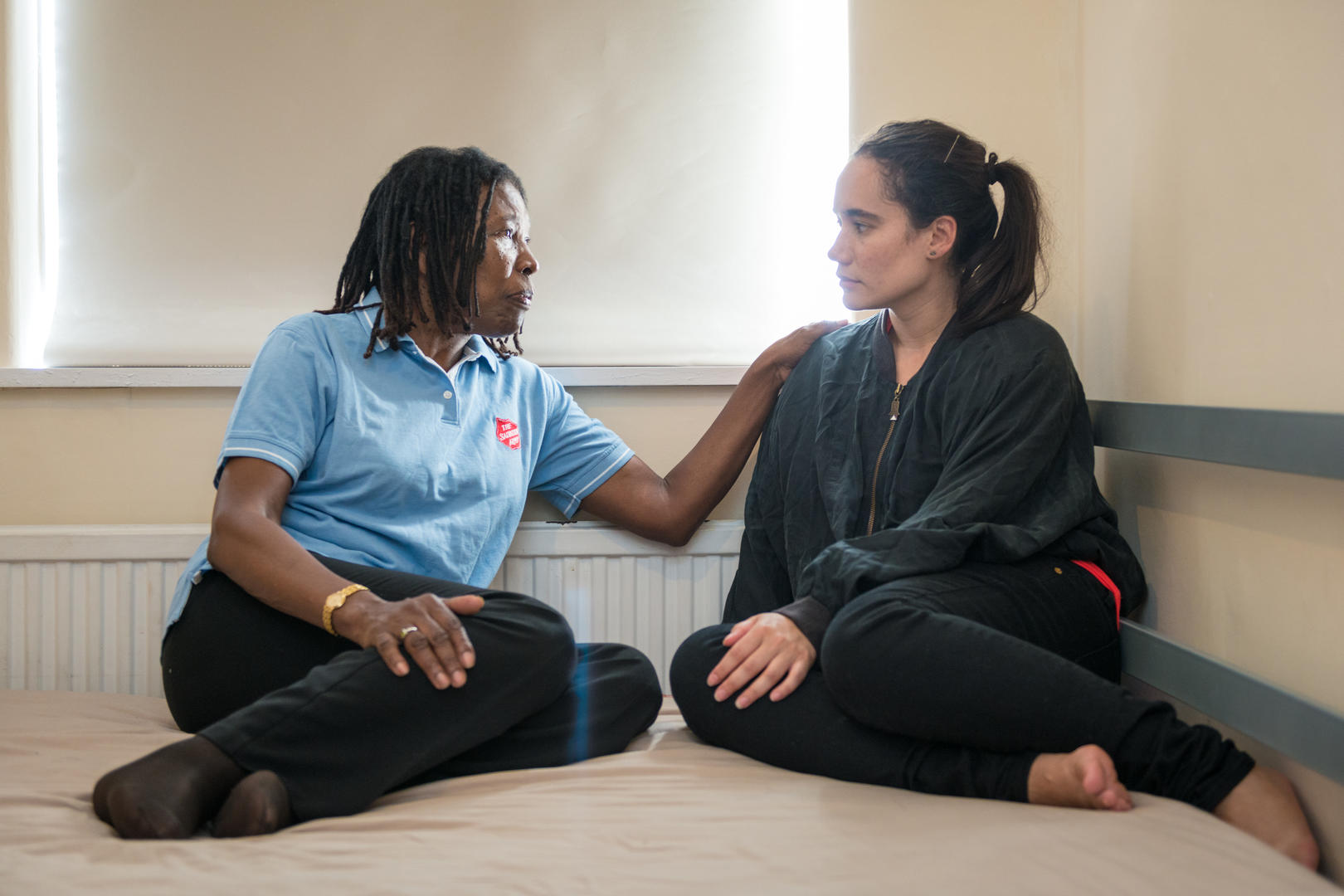Watch your language to protect survivors of modern slavery
published on 14 Sep 2021
The Salvation Army is launching a social media campaign to explain the difference between people ‘smuggling’ and people ‘trafficking’, often referred to as ‘human trafficking’.
The Salvation Army provides specialist support to survivors of human trafficking to help them deal with the specific and complex nature of their experiences. The church and charity is concerned that commentators and sometimes even decision makers are conflating ‘smuggling’ and ‘trafficking’ which can have consequences for survivors who need urgent help.
Major Kathy Betteridge, Director of Anti Trafficking and Modern Slavery for The Salvation Army, explains:
“Language matters when it can affect the way someone is treated and even prevent them getting the support they’re entitled to.
“Survivors of modern slavery and human trafficking can be subject to some of the worst acts of cruelty one person can do to another. They are in desperate need of the specialist support we and our partners provide to help them recover from the resulting trauma. It’s also important not to devalue the experiences of smuggled people, many of whom knowingly or unknowingly place themselves and their families in dangerous situations and pay unfair and exploitative fees to people smuggling gangs who feed on their desperation.
“We are passionate that anyone who can shape how these people are helped, whether it is decision-makers, the general public, or the commentators who influence them, has an accurate understanding of what they’ve been through. We’re therefore calling for an informed, accurate and clear use of language when considering the plight of all these vulnerable people. The more people who understand the difference between ‘smuggled’ and ‘trafficked’ the more we can ensure that everybody gets the support best suited to their individual needs and experiences.”

How to tell the difference:
When deciding whether to use the word ‘smuggling’ or ‘trafficking’, we need to consider three factors:
- Location – where did it take place?
- Consent – were people forced or did they consent?
- Exploitation – did people have free choice, even if under exploitative terms, or were they exposed to methods like threats or forced into exploitation outside their control?
For people ‘smuggling’, the following needs to have happened:
- Location - They must have been moved across international borders
- Consent - They made a choice to make the journey, even where danger was involved
- Exploitation - They were completely free to make their own choices once they had arrived in the UK
For people who have been ‘trafficked’ their experience needs to fit the conditions outlined below:
- Location – Geography doesn’t make a difference to ‘trafficking’. They could have been moved from one country to another or from one place in the same country to another, even from one street to the next
- Consent – They were forced or tricked by false promises into travelling and being used as a commodity
- Exploitation - A trafficker has used either mental or physical threats, force, coercion or deception to control someone and exploit them for their own profit
The Salvation Army has been providing specialist support to survivors of modern slavery and human trafficking for more than ten years. Thanks to the Modern Slavery Victim Care Contract, our partners and the incredible support of our donors, we have helped thousands of traumatised people break free from often violent criminals.
Many survivors tell us how they were forced to travel to the UK so they could work to pay off debts to criminal gangs and loan sharks. Often they have to travel in horrific conditions and are completely unaware of their final destination.
Others have been tricked into believing there was an opportunity to work or study in the UK, only to find on arrival they are trapped in slave-like conditions. They are then sexually exploited, forced to work without pay or commit crimes to make money for other people, often criminals running human trafficking networks.

